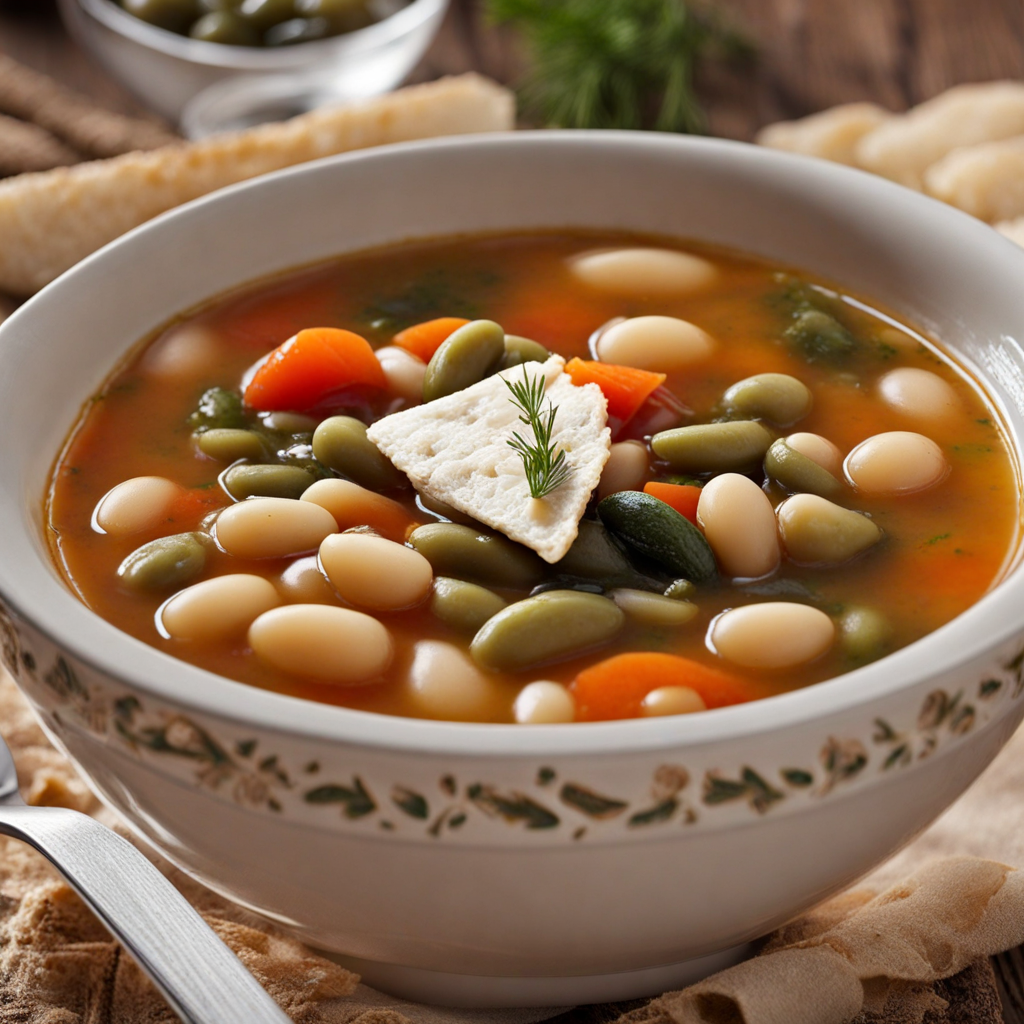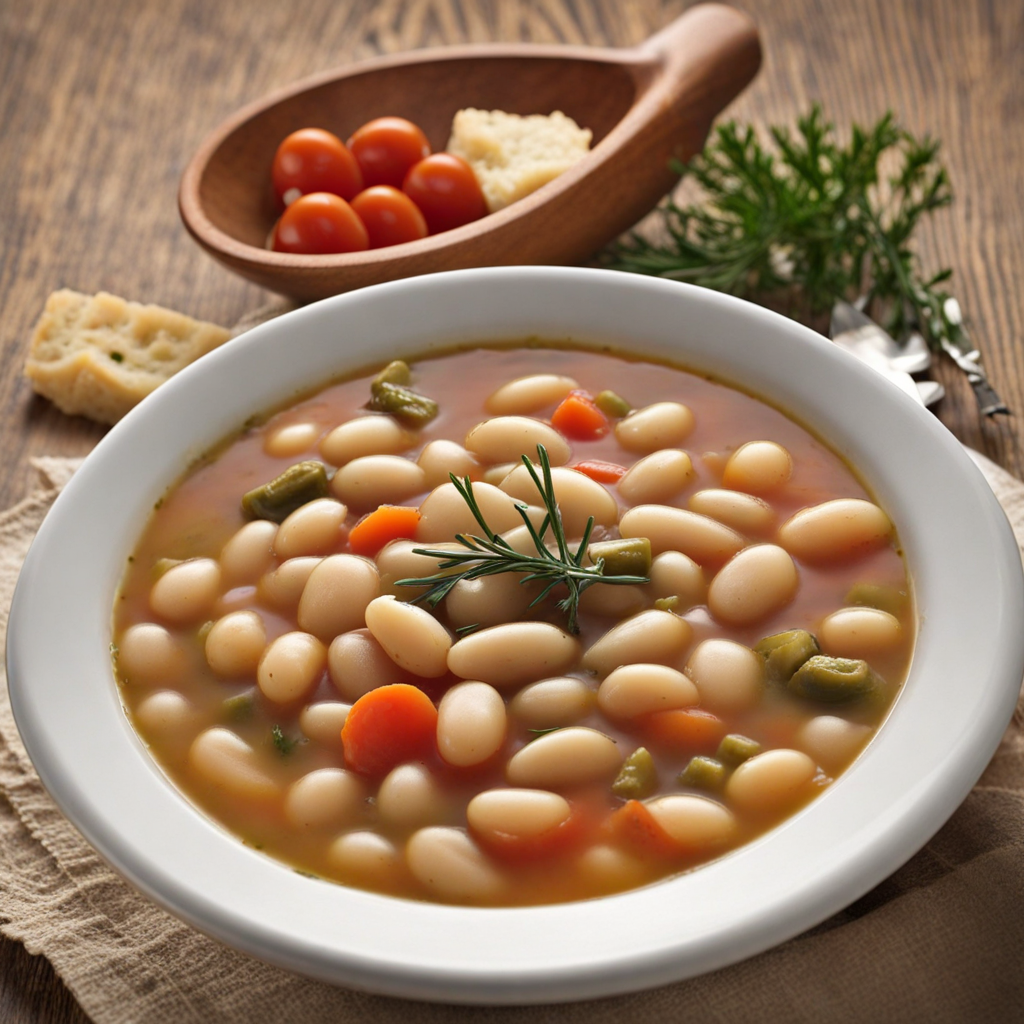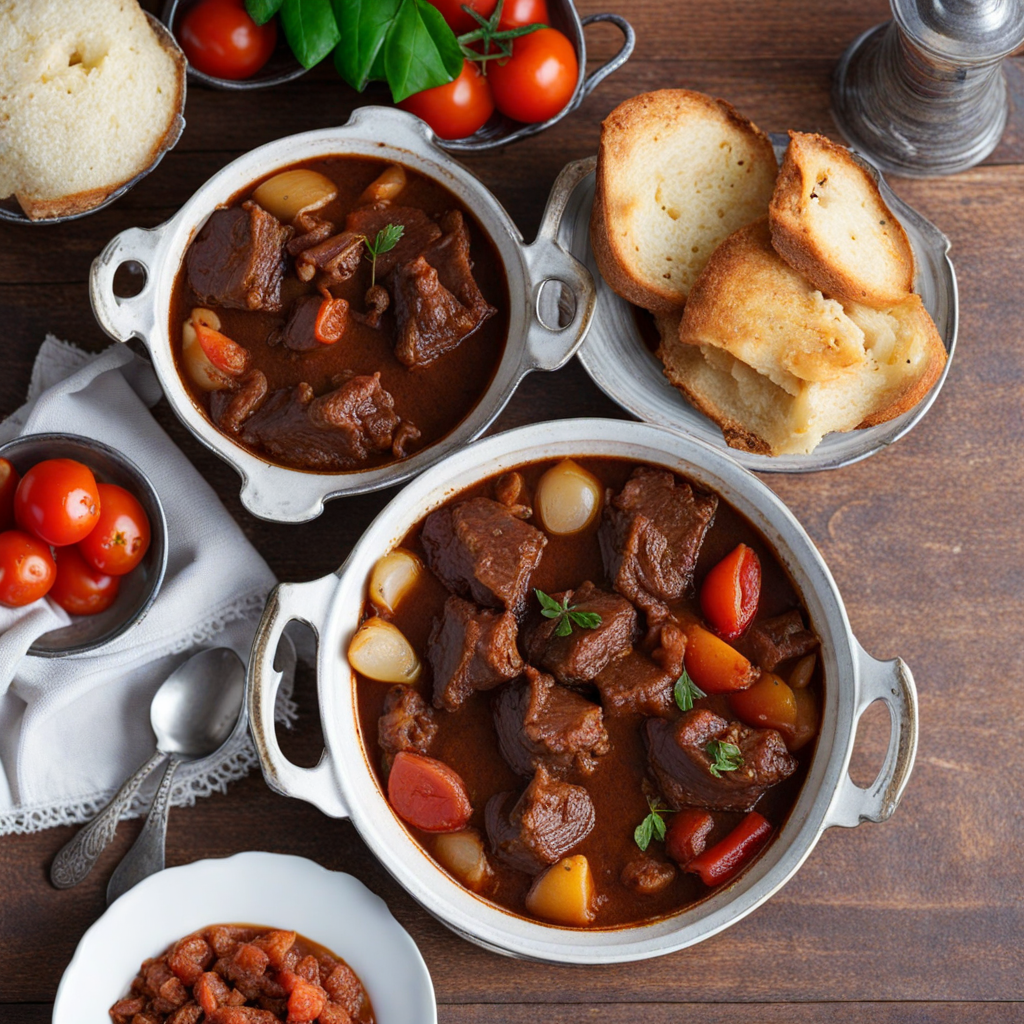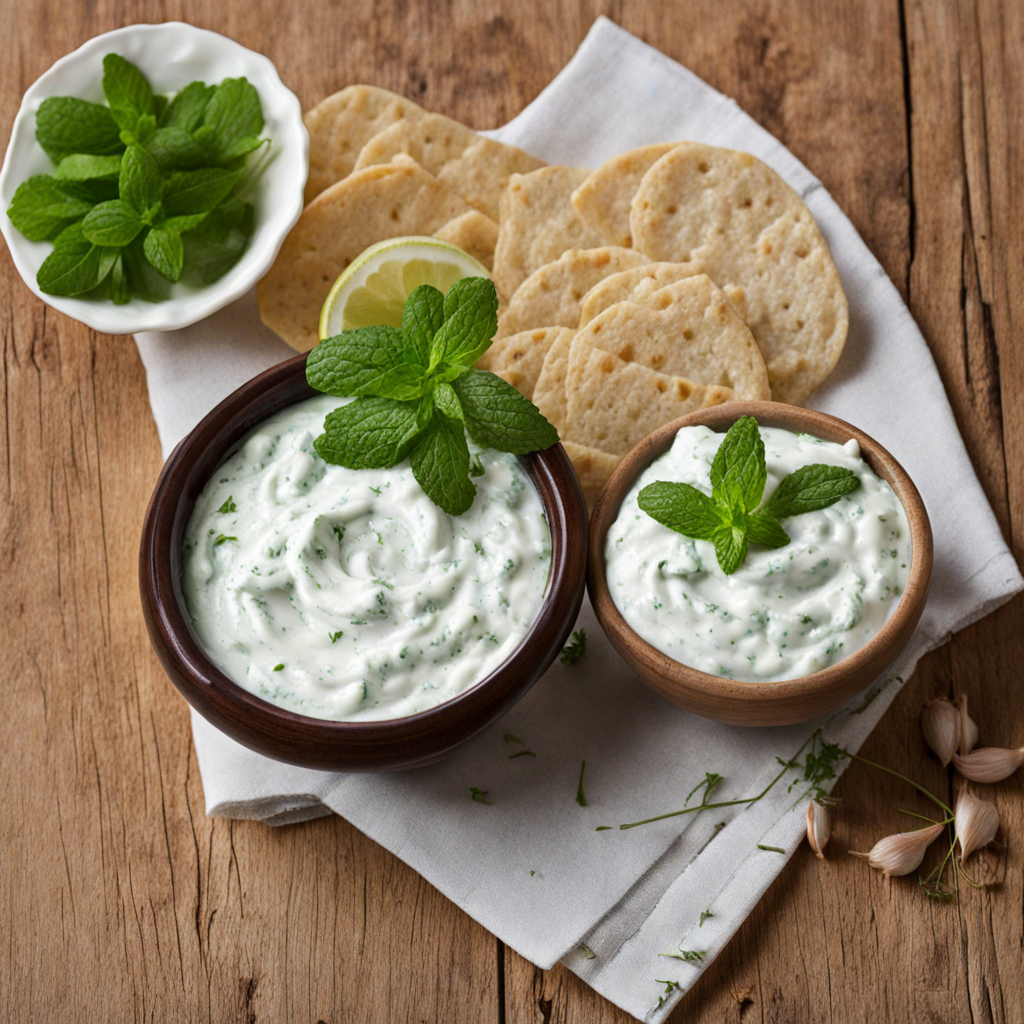Fasolada
Fasolada is a hearty and wholesome bean soup that is often considered the national dish of Cyprus. This delightful meal features the star ingredient, plump white beans, which are simmered to perfection in a rich tomato broth. The soup is complemented by a medley of vegetables, including aromatic onions, carrots, and celery, which add depth and texture to the dish. A sprinkle of fresh parsley and a drizzle of extra virgin olive oil right before serving elevates the flavors and gives it a vibrant finish, making each bowl a comforting and nutritious option for any meal. The flavor profile of Fasolada is a beautiful harmony of earthy and savory notes, with the beans providing a creamy base while the tomatoes add a slight sweetness and acidity. The spices used, such as bay leaves, oregano, and sometimes a hint of garlic, enhance the overall taste, creating a warm and inviting aroma that fills the kitchen as it cooks. Each spoonful offers a taste of Mediterranean sunshine, making it a perfect dish for both warm and cool weather, ideal for family gatherings or cozy nights in. Fasolada is not just a meal; it embodies the spirit of Cypriot cuisine, where simplicity meets flavor. It's a dish that is deeply rooted in tradition, often enjoyed as a staple during Lent and other occasions. Served alongside crusty bread for dipping, or as part of a larger spread with salads and olives, Fasolada is a celebration of wholesome ingredients that nourish both body and soul. Whether you are discovering it for the first time or revisiting a beloved recipe, this soup is sure to captivate your taste buds with its rustic charm and fulfilling nature.
How It Became This Dish
The Rich History of Φασολάδα: A Culinary Gem of Cyprus #### Introduction Φασολάδα, a traditional Cypriot dish, is much more than just a simple bean soup; it is a testament to the island's agricultural history, cultural heritage, and communal values. This hearty dish, made primarily from beans, olive oil, tomatoes, and a medley of vegetables, serves as a mirror reflecting Cyprus's complex history and the resilience of its people. In this exploration, we will delve into the origins, cultural significance, and evolution of Φασολάδα, illustrating how this humble dish has become an integral part of Cypriot identity. #### Origins: A Historical Perspective The roots of Φασολάδα can be traced back to ancient civilizations, with beans being one of the earliest cultivated crops in human history. Archaeological evidence suggests that legumes, including various types of beans, were planted and consumed in the Eastern Mediterranean as far back as 3000 BCE. In Cyprus, the climate and fertile soil provided ideal conditions for agriculture, allowing bean cultivation to flourish. As the island became a crossroads for various civilizations—Phoenicians, Romans, Byzantines, and Ottomans—each brought their culinary influences, shaping what would become Φασολάδα. While the dish itself may have evolved over centuries, the fundamental ingredients—beans, olive oil, and vegetables—remain constant, highlighting the sustainable agricultural practices of the island. The term "Φασολάδα" itself derives from the Greek word "φασόλι," meaning "bean." In its essence, Φασολάδα reflects the simplicity and resourcefulness of Cypriot cooking, relying on locally sourced ingredients that are both nutritious and affordable. #### Cultural Significance Φασολάδα has always held a special place in the hearts of Cypriots. Traditionally prepared during the Lenten season, this dish embodies the spirit of fasting and frugality, as it is rich in plant-based proteins yet devoid of animal products. Its preparation often brings families together, fostering a sense of community and shared heritage. Moreover, Φασολάδα has been a staple in the diets of the working class, providing sustenance during long hours of labor in the fields or on fishing boats. The dish symbolizes solidarity and resilience, as families would often prepare large pots to feed not only their own but also neighbors in need. The communal aspect of sharing food is deeply ingrained in Cypriot culture, and Φασολάδα serves as a vehicle for these values. #### Development Over Time As Cyprus navigated through different historical periods, so too did the evolution of Φασολάδα. During the Ottoman era, which lasted from the 16th to the 20th century, the dish began to incorporate spices and flavors that were characteristic of Ottoman cuisine. Ingredients like cumin, coriander, and paprika became common additions, enhancing the dish's complexity and depth of flavor. In the 20th century, as Cyprus experienced social and political upheaval, including the division of the island in 1974, food became a means of cultural expression and identity. The preparation of traditional dishes like Φασολάδα took on renewed significance as a way to preserve heritage amidst changing times. Cypriots abroad, particularly in the diaspora communities, often prepared Φασολάδα as a way to maintain connections to their homeland, sharing memories through flavors and aromas. In recent decades, the rise of the organic and farm-to-table movements has also influenced the way Φασολάδα is prepared and enjoyed. Chefs and home cooks alike are increasingly sourcing local, organic ingredients, emphasizing the importance of sustainability and the connection between food and the environment. This trend has led to a revival of traditional recipes, often paired with modern culinary techniques that enhance the dish without overshadowing its origins. #### Regional Variations and Modern Adaptations While the basic recipe for Φασολάδα remains consistent, regional variations exist across Cyprus. Different areas may emphasize particular types of beans or local vegetables, leading to unique interpretations of this classic dish. For example, in coastal regions, seafood might be incorporated to add a distinct maritime flavor, while mountainous areas might lean towards heartier root vegetables. Modern adaptations of Φασολάδα have also emerged, catering to contemporary tastes and dietary preferences. Many chefs are now experimenting with plant-based versions that include a variety of beans, lentils, and even quinoa, appealing to vegan and health-conscious diners. Some versions of Φασολάδα have been reimagined as a gourmet dish, served in upscale restaurants with artisan bread or drizzled with high-quality, cold-pressed olive oil. Despite these innovations, the essence of Φασολάδα remains unchanged. It continues to be a symbol of home, family, and the enduring connection to Cypriot identity. #### Conclusion Φασολάδα is more than just a dish; it is a vibrant part of Cyprus's historical and cultural tapestry. From its ancient origins to its contemporary interpretations, this bean soup reflects the island's agricultural heritage, communal values, and adaptability to changing times. As Cypriots continue to gather around the table to share Φασολάδα, they are not only nourishing their bodies but also preserving a piece of their history and identity. In essence, Φασολάδα encapsulates the resilience and resourcefulness of the Cypriot spirit, serving as a reminder that even the simplest dishes can carry profound significance, bridging generations and fostering a sense of belonging. As the island of Cyprus moves into the future, Φασολάδα will undoubtedly remain a beloved culinary tradition, cherished by locals and visitors alike.
You may like
Discover local flavors from Cyprus







